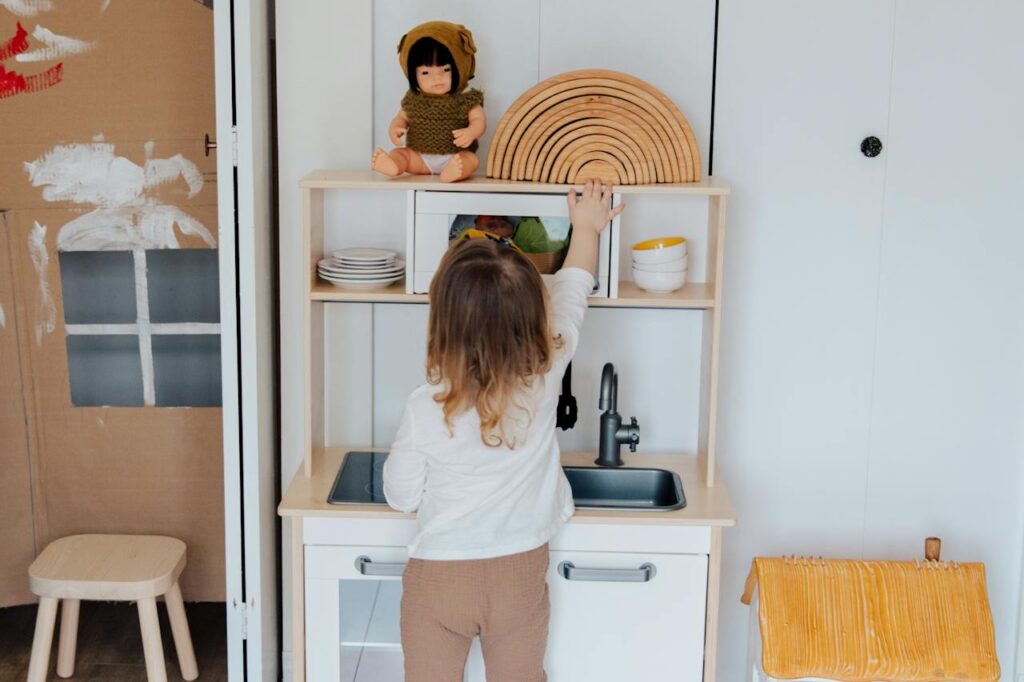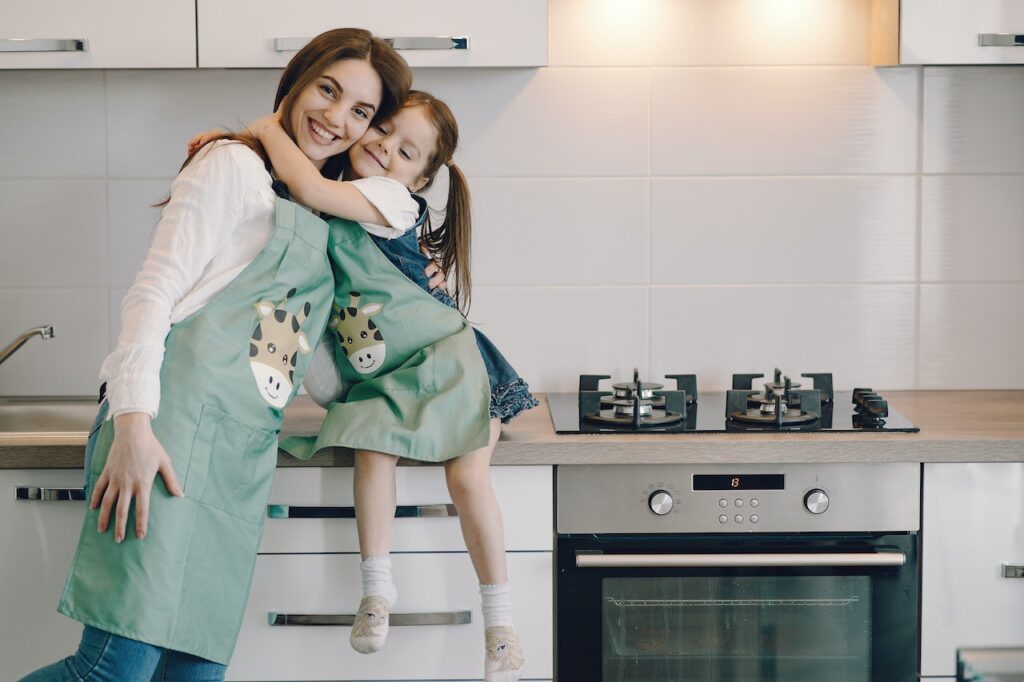In this article, we’ll explore five life skills needed for homeschool learning, and how they can empower students to become more confident, capable, and engaged learners both in and out of the classroom.

Homeschooling offers a unique opportunity to cultivate essential life skills that go beyond traditional academic knowledge. In a homeschooling environment, students have the chance to develop independence, self-discipline, and critical thinking, all of which are vital for long-term success.
By focusing on life skills such as problem-solving, communication, time management, organization, and adaptability, homeschooling provides an ideal space for children to learn these valuable tools in a personalized setting.
Preface: When we refer to the classroom in this article we imply the traditional face – to – face classroom, online classroom, as well as the hybrid classroom.

Sign up below to get your copy of this infographic that benefits mental health by having teachers and students build their recipes for success in education
Click to view this and other selections of digital products
Building Your Confidence in the Kitchen!
This blog contains Amazon affiliate links to highlighted websites and/ or resources. By clicking on the links and making a purchase we may earn a small commission at no extra cost to you. Click here for full disclosure.
Kitchen play sets provide an social and imaginative platform for children to enhance their life skills. Through role-playing scenarios in a kitchen setting, children engage in play with their peers, siblings, or imaginary friends.

They learn to express their ideas, manage responsibilities, and organize roles, fostering effective interpersonal skills. Furthermore, activities such as planning and coordinating a “meal” in the play kitchen encourage children to build skills while promoting language development.
As they engage in collaborative play, children naturally practice active listening, turn-taking, and conveying information, vital components of effective communication.

By immersing themselves in the world of kitchen play sets, children not only develop a rich vocabulary related to food and cooking but also build the foundational communication skills essential for successful interactions in various social contexts.
To read more about the benefits kitchen play sets bring children, click here.
5 Life Skills Needed for Homeschool Learning (Recipes) Video
The skills children build in the kitchen can easily transfer into their schooling environment and in their everyday lives!
In school, children will know how to organize their time, follow directions, problem solve, and how to communicate when it comes to building success.
Watch our video below on how we all can build our own success with recipes for learning.
Keep reading as we show parents and children alike how important life skills such as; organization, time management, self-reliance, problem solving, and communication can transfer themselves from kitchen to classroom.
The Kitchen to Classroom Video
Watch the video below to get a sneak peak at the five ways the kitchen inspires education!
If you enjoyed these videos, please like, share, and subscribe to The ETI Academy!
We have even more videos coming your way next!
The Five Ways The Kitchen Inspires Education
Here now are the five ways we believe the kitchen inspires education. When we look to the kitchen to build important skills, we can easily see how these skills can be used in the classroom.
Click to watch the video below highlighting the five ways to transfer your skills from the kitchen to the classroom and in life!
I. Building Organizational Skills
From kitchen to classroom, the kitchen inspires education through building our organizational skills.
Organization in the kitchen means having all the ingredients planned, prepared, and ready to be assembled!
Being organized makes meal time preparations easier to follow and understand when you have all the ingredients ready as you follow the steps to putting them altogether.
In the classroom, this means having all materials necessary for the lesson planned, prepared, and ready to be used.
In school, teachers and students need to keep their supplies, goals, and thoughts organized.
This helps sets the stage for important educational strategies to used by both teachers and students in order for both to get the most of out the lesson when it comes to teaching and learning.
Click here to learn more about how to stay organized in school.
II. Establishing Our Time Management Skills
From kitchen to classroom, time management, as any great cook will tell you, is vastly important in the kitchen!
We all know the importance of time management in following directions to a recipe, and the results that can happen when we don’t pay attention to time.
We could under cook, or over cook the meal, as bad consequences. When we do pay attention to time, we end with amazing results (the meal), and a recipe we can cherish for years to come.
A simple example would be boiling an egg. You may not get it right the first time, but once you pay attention to the timing it takes to boiling eggs, you’ll get it right every time!
Similarly when we learn the value of time management, in the classroom, much more can be done by both teachers and students.
This doesn’t necessarily mean getting more paperwork done, but instead more time to discuss the lesson, review the lesson, and present other creative means to enjoy the lesson.
We can turn boiling an egg into many fun and exciting science, math, and language activities.
How do you find baking cookies as it relates to science, math and language?

Math; it relates to numbers, both for the clock timing, and temperature, as well as measuring how much of the necessary ingredients are actually needed. More chocolate chips please!
Science; it relates to how heat and temperature work.
Language; communicating how to properly follow the cookie recipe, which can bring about so many different emotions!
Students click here to learn more about how to better manage your time in school.
Teachers click here to learn more about how to better manage your time in school.
III. Building Critical Thinking Skills
From kitchen to classroom, when we become more independent we learn to depend on our own without assistance from others i.e. building our critical thinking skills.
How does one get there?
By simply following the necessary steps or directions to get to where they need to be.
In the kitchen, this relates to understanding how one cooks or bakes!
Being able to skillfully understand how to put together a food recipe so that everything comes together peacefully and smoothly, allows others to learn and follow along.
When we follow tried and tested recipes, we become more independent in creating and exploring different ways to create our own tasty dishes each and every time!
In the classroom, this relates to building critical thinking skills.
Homeschooling students can learn to become more self-reliant when they are afforded the opportunity to explore, ask, and present new ways of thinking on different educational topics.
When the class runs as it should, students can benefit from the time given to teaching and learning the lesson for the day.
When the class runs as it should, students can benefit from the time given to teaching and learning the lesson for the day.
By including students they value the rewards and consequences even more, and so everyone in the class benefits.
IV. Improving Our Problem Solving Skills
Problem solving in the kitchen can result in some pretty amazing dishes!
From having to come up with ingredients to replace initial ingredients we don’t have, or for changing the recipe to meet dietary restrictions, if done properly problem solving in the kitchen is one amazing skill!
In the homeschool classroom parents and children may come across a whole host of problems. For example, materials may not be ready and available to use, or there could be problems with technology (no internet = no online classes).
If problems in the classroom are not quickly resolved, there may be greater issues with classroom management.
The best approach to problem solving starts with a positive mindset, followed by a three step process. First, recognize details about the problem. Second, understand what you are looking for. Finally, use the best approach to the solution.
V. Enhancing Our Communication Skills
Communication in the kitchen can be seen as reading the recipe guide, communicating verbally how to follow the directions, or completing the recipe.
Explaining while you cook may look like an easy task, but as anyone who has tried and succeeded will tell you, it’s a lot harder than it looks!
In the classroom, improving language skills through the four means of communication is one of the most important goals for both homeschooling parents and children. With the right choice of words, communication in any form will always be at its best.
How can we improve our communication skills in the classroom?
- Don’t be afraid to ask questions
- Learn to listen to others are saying
- Consider your words when you are explaining your thoughts to others.
Related Topics
For more topics related to education; click to read more from EduKitchen & The ETI Academy
- Free K – 12 Resources for the Homechool Classroom
- Teaching Guides for the Homeschool Classroom
- 5 Benefits Educational Videos Bring to Homeschooling
- 7 Ways to Build Recipes for Learning
- Why Parents and Children Love Ahimsa Kitchen Products
- 7 Ways Kitchen Play Sets Benefit Learning in Kids
- Build Critical Thinking Skills in Kids
- Improve Communication Skills in Kids
- Create Better Problem Solving Skills in Kids
- Improve Time Management Skills in Children
- Why ChatGPT And The Future of Homeschooling Will Change
Join Us Today!

Final Thoughts…
One important thing to remember when you find yourself either in kitchen or classroom is to work smarter, not harder.
What does ‘work smarter, not harder’ mean when we know hard work helps determination?
It means that we focus our energy in using the proper skills (like organization, problem solving, communication, and in following directions) so that saves us time and energy.
When we save energy we build our confidence and enthusiasm for the time we spend in the kitchen or the classroom! These are just some of the important ways to see how the kitchen inspires education.
Find more about The ETI Academy by clicking here.
Share Your Thoughts
Let us hear your thoughts on our 5 reasons why the kitchen inspires education and whether you agree or disagree with our reasons.



